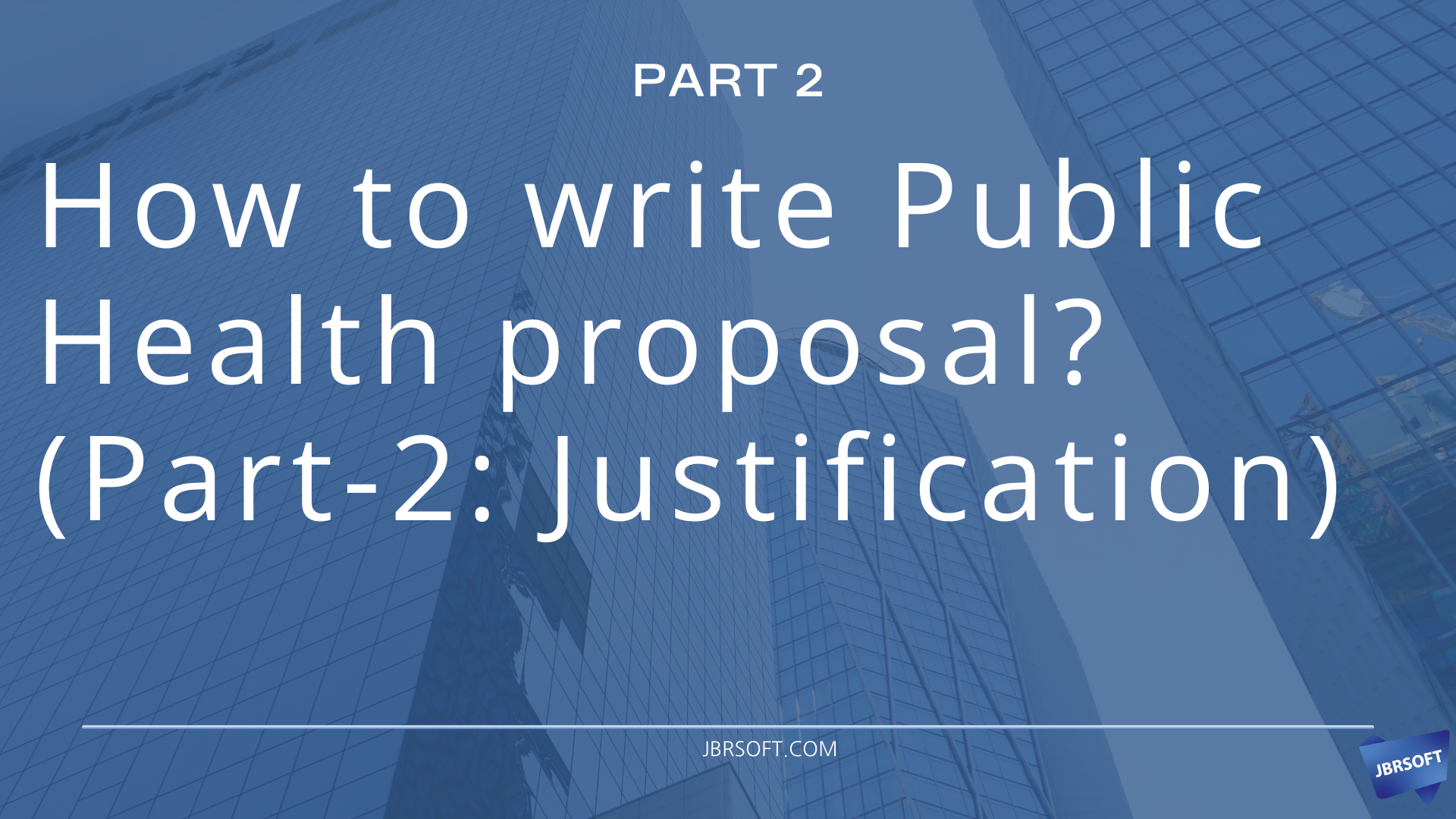Blog | How to Write a Public Health Proposal? | Part-2: Justification
How to Write a Public Health Proposal? (Part-2: Justification)
Writing a strong justification is one of the most crucial aspects of a public health proposal. It provides a clear and persuasive argument for why your intervention is necessary, the impact it will have, and why it deserves funding or support. In this guide, we’ll walk you through the essential steps to craft a compelling justification for your public health proposal.
1. Identify the Problem
Clearly define the public health issue your proposal aims to address. Provide evidence through statistics, research findings, or case studies to establish the significance and widespread impact of the problem.
"The prevalence of [specific public health issue] has reached alarming levels, with [statistics or data] showing a significant burden on individuals, communities, and the healthcare system."
2. Explain the Urgency
Emphasize why immediate action is needed. Highlight the risks of inaction, potential escalation of the issue, and long-term consequences if the problem is not addressed.
"Without intervention, we risk seeing a rapid increase in cases, severe health complications, and an overwhelming strain on our healthcare infrastructure."
3. Present the Benefits and Expected Outcomes
Describe the potential positive impact your intervention will have on public health. Use evidence-based approaches or success stories from similar interventions to support your claims.
"Our proposed intervention aims to reduce the incidence of [specific public health issue] by promoting early detection, increasing healthcare access, and raising awareness within the community."
4. Align with Public Health Priorities
Connect your proposal with existing public health policies, local or national health strategies, and global initiatives. Demonstrating alignment with broader objectives strengthens your justification.
"This proposal aligns with the [relevant public health initiative or policy], which prioritizes addressing [specific public health issue] to improve health outcomes and reduce disparities."
5. Justify the Cost-Effectiveness
Explain why your proposal is a cost-effective solution. Highlight how the investment will lead to long-term savings in healthcare costs, increased productivity, or economic benefits.
"By investing in this intervention, we can reduce hospitalizations, lower healthcare costs, and create a healthier, more productive community in the long run."
6. Conclude with a Call to Action
Summarize your justification by reinforcing the importance of the intervention and urging decision-makers to take action in support of your proposal.
"Now is the time to act. With the right investment and commitment, we can make a tangible difference in tackling [specific public health issue] and improving community health for generations to come."
↵

